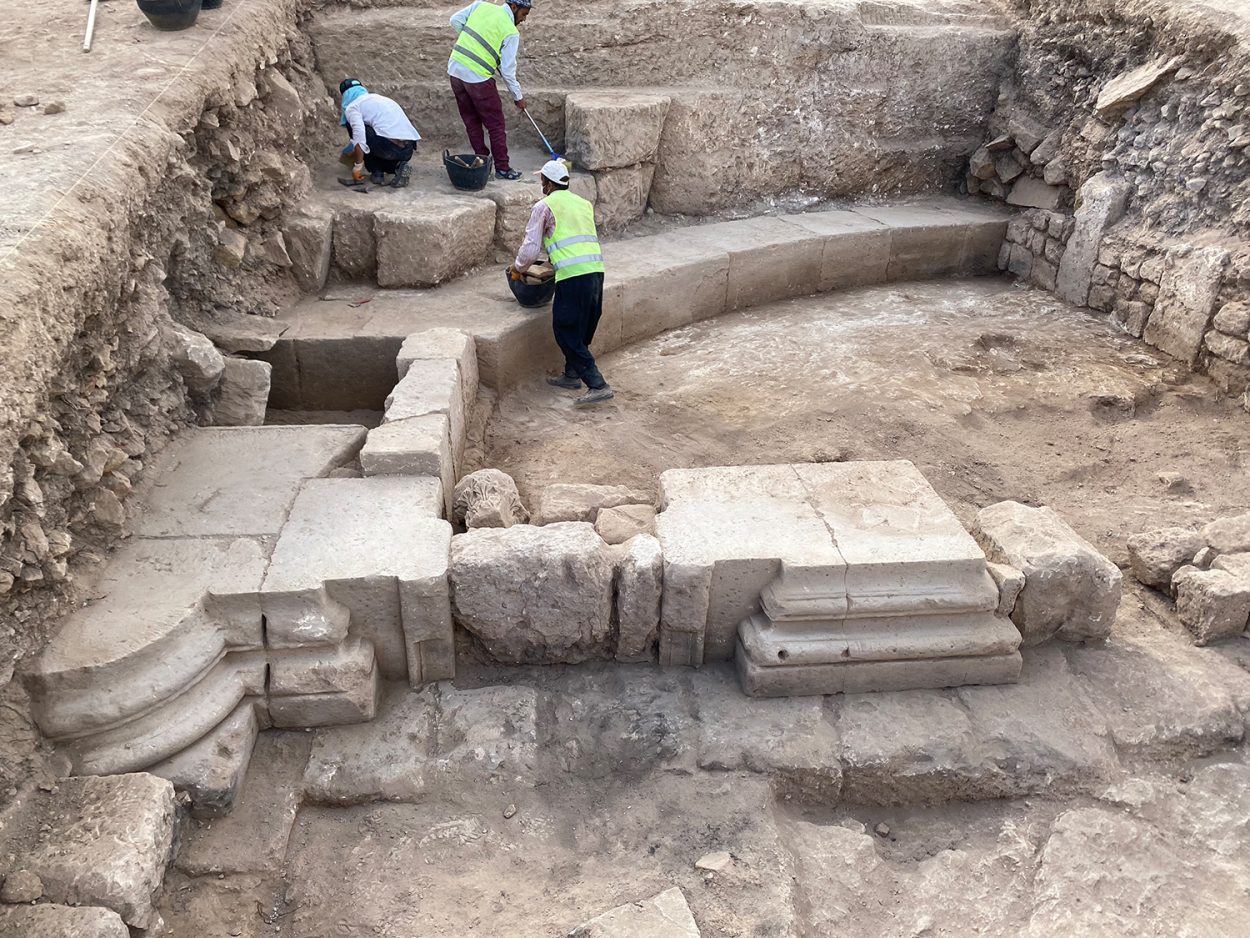A team of archaeologists have discovered a previously unknown Roman sanctuary in the ancient city of Doliche, located in south-eastern Turkey.
Doliche was founded as a Hellenistic colony during the 2nd century BC, that the Romans annexed in AD 72 as part the region of Commagene, and incorporated into the Roman province of Syria.
Excavations at the site were conducted by archaeologists from Münster University’s Asia Minor Research Centre which uncovered large parts of a temple complex that previous studies using ground penetrating radar had given no indication for a buried structure.
Studies have revealed that the temple is orientated on an east-western axis, and has a width of 35 metres containing an apse (a large semi-circular or polygonal recess) on the western side.

“Despite the high level of destruction through subsequent use and pillaging, the uncovered remains give a good impression of its monumentality.” says excavation director Engelbert Winter. “Also, numerous fragments of capitals and beams of substantial size already allow us to reconstruct very precisely the building’s structure” Added Winter.
Initial assessments suggest that the temple has an unconventional design for buildings found in the eastern Mediterranean region, however, the researchers suggest that there are parallels with temple structures from Palmyra and in southern Syria.
Excavations are still at an early stage, with the deity worshiped in the temple yet to be determined, but it has been suggested that the temple could have been a sanctuary for the worship of a Roman emperor cult.
The discovery underlines the fact that Doliche is a place where religious developments in the Middle East of antiquity can be studied particularly well: in the past, the Münster team uncovered the sanctuary of Jupiter Dolichenus outside the town, a subterranean sanctuary of the god Mithras and a large early Christian basilica dating from the 4th century AD.
Header Image Credit : Research Centre Asia Minor





